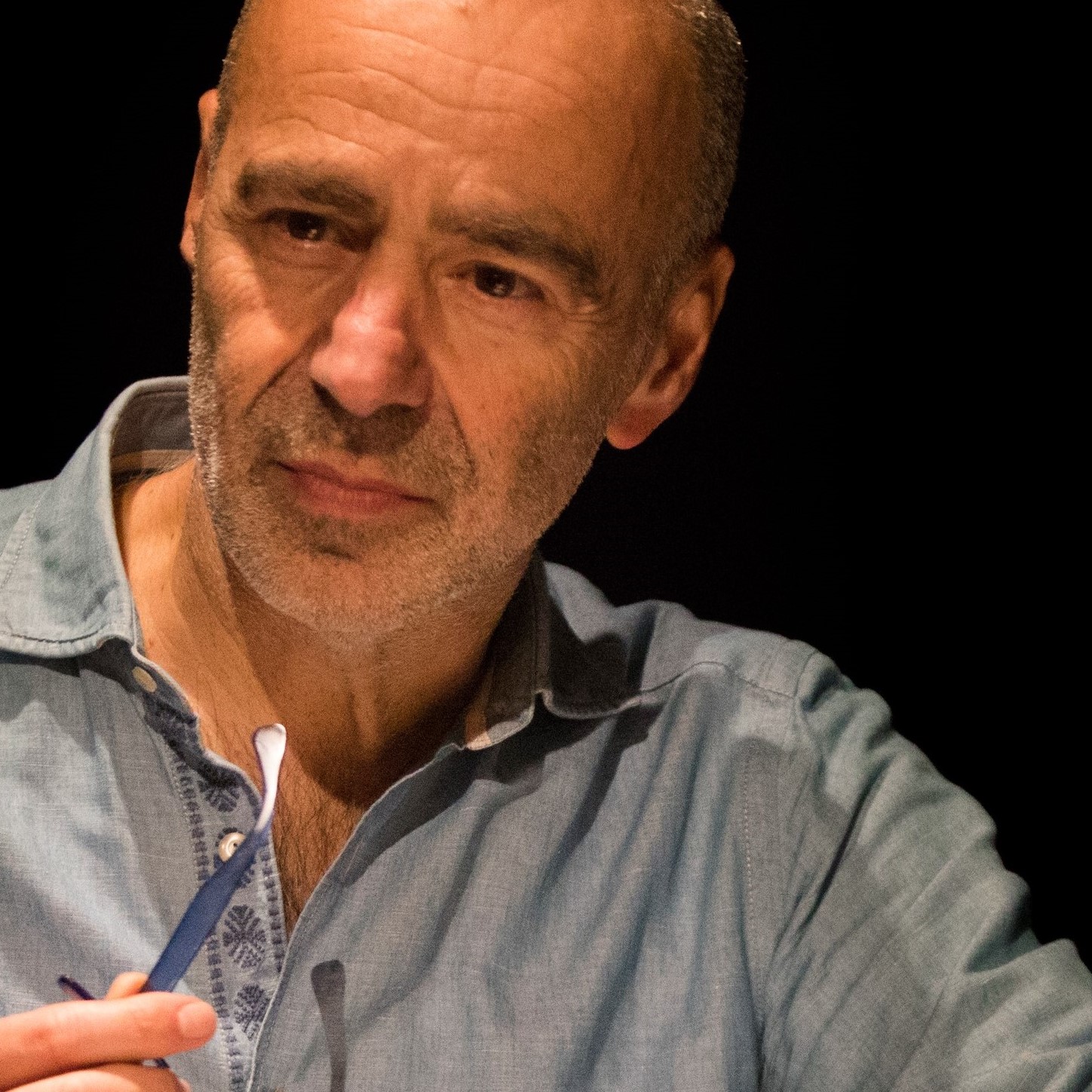

Raffaele Bellafronte
*8 January 1961
Works by Raffaele Bellafronte
Biography
RAFFAELE BELLAFRONTE (Vasto *1961) graduated in piano with Lucia Passaglia, studied composition and analysis with Firmino Sifonia, Giampaolo Chiti and Fulvio Delli Pizzi. After years of research and experimentation in recording studios, his production gradually shifts from a model where the author expresses his ideas, realizes them and proposes them definitively through an audio medium, to one that reconnects the threads with the compositional strategies of previous centuries. His works have been published by Universal (Vienna), Les Productions d’Oz (Canada), Rai Com, Curci, Carisch, Bongiovanni, Bèrben, DaVinci Edition (Japan) and cross national borders to land on sale in concerts and theaters among the most important in the world such as Carnegie Hall in New York where in October 1996 Oasi alla mente was commissioned and performed in a world premiere. Since then, many other important events have taken place, including: Moscow (Tchaikovsky Hall) 2002 Sur le blanc, concerto for flute and orchestra; Vienna (Konzerthaus) 2003 world premiere of Il labirinto dell’anima for piccolo and orchestra; Denver (Colorado) 2004 world trumpet convention, first performance of Afrika for trumpet and piano; San Diego (California) 2005 world flute convention, first performance of The Crazy Acrobat for piccolo and piano; Tokyo 2005 world clarinet convention, first performance of Frammenti d'ombra e luci for solo clarinet; Rome - Parco della Musica - 2005 Italian government Christmas concert with Ave Maria for soprano and orchestra; Vienna 2009, in the official season of the Musikverein, world premiere of Zeit, concerto for bassoon and orchestra; September 2011 at the Teatro Petruzzelli in Bari, with “I Virtuosi della Scala” world premiere of Frontiere for clarinet and string orchestra; 2013 New York, world premiere of Maria del Mar for double bass and piano at the ISB - International Society of Bassists; April 2014 at the Teatro alla Scala with Midnight plays for clarinet, cello and piano. On January 30, 2015 he returns to Carnegie Hall in New York with the American premiere of Tarantella for guitar, and on November 6, 2016 at the Musikverein in Vienna with the world premiere of Suite No.2 for bassoon, guitar and string orchestra. He has recorded for the record companies Summit Records, Brilliant Classics, Stradivarius, Tactus, Delos International, Rai trade, Bongiovanni. Creator and artistic director of the Masterclasses – Seminari Musicali Internazionali, since 1990, he has curated all the editions for twenty years. Since 2007 he has been the Artistic Director of the Teatro Rossetti and the Scuola Civica Musicale – Città del Vasto. He has taught at the Conservatories of L’Aquila, Sassari, Como and Trapani. For 22 years he has been a teacher at the Campobasso Conservatory.
In 2003 he received a Grammy Award nomination with the recording of Suite No.1 for Delos Recors (USA) with Dimitri Illarionov and Boris Andrianov. In 2017 he received the prestigious international award “Golden Guitar for Composition” at the 22nd International Guitar Conference on the occasion of the 50th edition of the “Michele Pittaluga” Guitar Competition in Alessandria. On 9 April 2018 he returned to the Teatro alla Scala with the world premiere of the string quartet In Search of Dance with the Teatro alla Scala String Quartet.
His recordings and publications are included in the major world music catalogues.
www.raffaelebellafronte.it
About the music
Raffaele Bellafronte’s music is free, mobile, rich in distant echoes and yet tenaciously reflecting today’s reality. It has a strong communicative character without slavishly tracing traditions that can no longer be exhumed. It shows an enviable tenacity in blending singing qualities, tonal propensities, and paroxysmal ostinatos that never expire in minimalism. It lives off an expressive density that is also made of harmonic harshness. It exhibits a stubborn lack of craftiness in building a sound world full of points of support, while at the same being never fully predictable. Bellafronte’s music is certainly also calculated. Nonetheless, it has the felicitous happenstance not to present itself only as such to the listener: it moves, pulsates; it lives beyond and above possible exegeses; it narrates something that ultimately makes one want to listen to it time and again. Raffaele Bellafronte’s music always communicates. But it is not “easy” music that strives to please. it does not do somersaults, it does not wink. Sometimes it actually does, ironically, however always towards itself – never towards the listener. Bellafronte is not a composer in search of the new for its own sake: he is not afraid of using tradition and transcend it through a language that is always direct, original, and communicative. His personality is such that, in the context of a series of nuances and scents, in some cases evident, in others more subterranean, he manages to create a sound-imagery that never excludes the listener’s perception, never sets itself entirely in rethinking the idea of certain historical and historicizable forms.
Modal and tonal harmony are constantly challenged, disrupted through dissonances that never obfuscate the underlying clarity of the musical narrative. In this sense, I can proclaim unwaveringly that Raffaele Bellafronte’s music, specifically in these works, has reached the apex of classicism without becoming neoclassical. His neoclassicism, should we prefer to define it that way, is therefore not linguistic or stylistic, but philosophical in nature.
